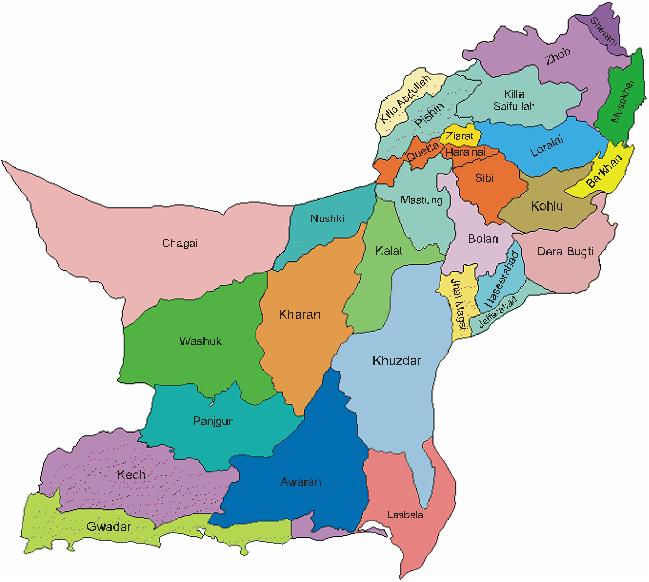
The expulsion of Afghans by Pakistan (read ISI) has not played well on the psyche of the border city of Chaman, Balochistan. To further aggravate the situation are Pakistan’s human rights violations and the ever-increasing Chinese interests in Gwadar through CPEC.
The Chaman border is once again in the mainstream after the leader of the ‘Haq Do Gwadar Tehreek’ (Give Us Rights Movement) Maulana Hidayat-ur-Rahman Baloch was detained and subsequently prevented from attending the protest. A peaceful sit-in at the national highway in the Chaman district has been ongoing for nearly 4 weeks now, far from the media coverage and government attention. Yet the locals are determined, waiting to be granted rights over their land by the tyrannical government.
Thousands of people are sitting at the porous Spin Boldak border asking for basic constitutional rights. Further, the banishment of Afghan descent folk who were promised shelter in Pakistan from unrest in Afghanistan for more than four decades has intensified the border climate. For the Pashtun citizenry, the border has always been non-existent. The sudden shift in Pakistan’s attitude towards neighboring Afghanistan is bound to break families on either side of the border.
More than half of border dwellers have businesses and employment on the other side; the move will endanger their livelihood – an urgent concern in Balochistan given the Chinese takeover of their mineral-rich land. Chaman like other border areas neither has any fruit or crop yield, nor is there industry. How is the government then expecting the people to earn their livelihood? With the border now requiring passports and visas, the Pashtuns will further fall to the lowest financial strata of Pakistani society during the time of economic collapse and starvation.
“The locals have been desperate for the government’s attention,” noted Hidayat-ur-Rahman, who has been jailed and detained several times. He fears for the fate of Balochistan amidst this crisis. If in the days preceding the elections, the political elite are ignoring the people, imagine how they they will treat them once in power. It is not the first time that Rahman has received backlash from the police and the Pak Army for his statements, yet he has persisted in the face of the Pak dictatorship. Rahman lamented, “We are being made slaves, we are arrested for calling a spade a spade!” He has been the mouthpiece for Balochistan’s seven-decade struggle for liberation from Pakistani colonization.
The sit-in Haq Do protest was also joined by the popular leader of the National Democratic Movement, Mohsin Dawar. Local administration issued advisories against him, and the powerful circles ensured he was escorted back to the airport in Quetta and returned to Islamabad. Why the government is striving to contain the uprising in Chaman is a question for any reasonable citizen to reflect upon.
Several Baloch police officials have been fired for showing sympathy to Afghan refugees. They were recorded criticizing the government’s decision to cruelly throw out the Afghan ethnic population and appealing to other officers to join the cause. It is widely known that the dictatorial rulers have continued dissenting the voices of the vulnerable. Several local leaders also claim that the extradition of Afghans is an excuse to increase the Pak Army footprint and surveillance in Balochistan. Clearly, it is the mockery of democracy in Pakistan.
Rather than building better relations with Afghanistan and brainstorming solutions to the sudden Afghan expulsion, Pakistan is bent on building walls between ethnic Pashtun and Pathan communities on both sides of the border; this has always proved counterproductive. Reconciliation is far-fetched when Pakistan could not even give the Afghans an honorable return. With Afghan leadership’s prolonged silence, political analysts predict turbulent times ahead. Raising barriers between people by the use of force is not only wicked but a violation of human rights. The porous border was a symbol of brotherhood between both nations and raising the boundary will have serious repercussions.






